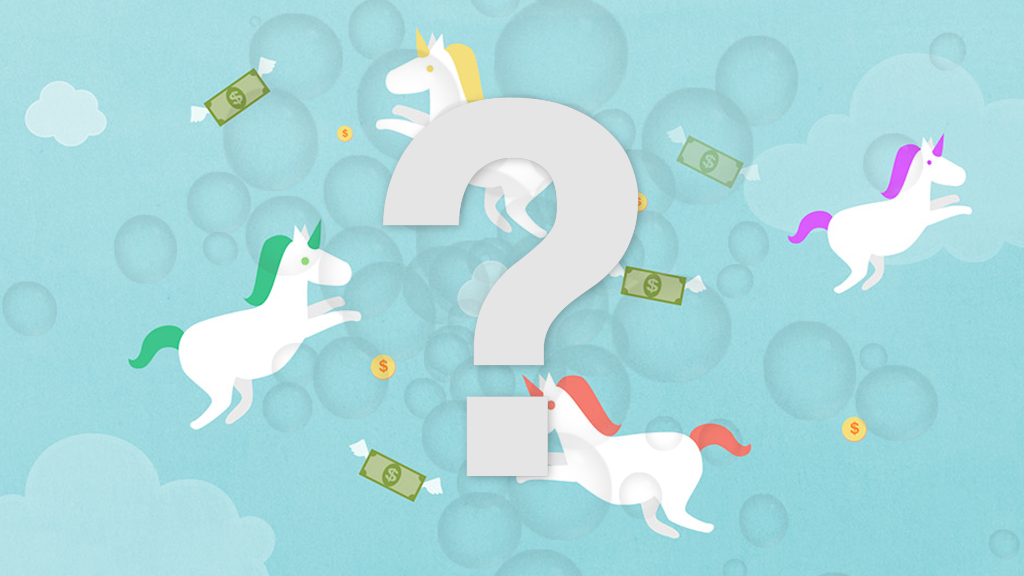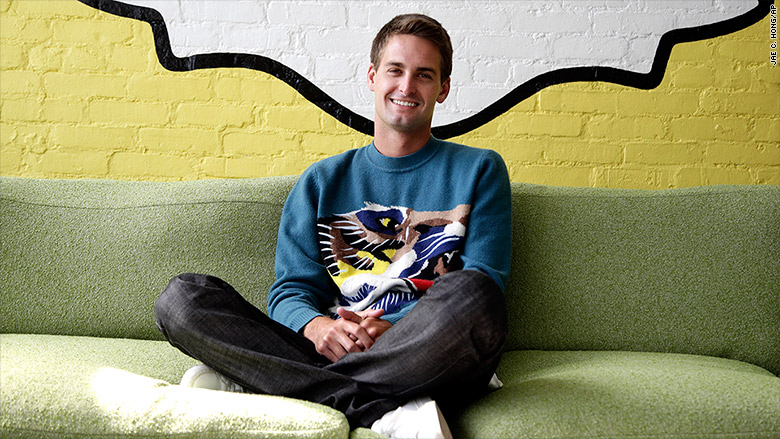
The rush to earn unicorn status has set up some of Silicon Valley's hottest companies for failure.
The number of privately held companies valued at $1 billion or more -- referred to as unicorns by the Silicon Valley set -- now tops 140. That's more than triple what it was in 2013.
These companies are changing the way we travel (Uber, Lyft, Airbnb), shop (Instacart, Postmates), work (WeWork) and make payments (Stripe). But many of them are unprofitable with unproven business models. Some, like Theranos, have even had their very technology questioned.
The unicorn companies have raised more than $78 billion, according to data from PrivCo. Some unicorns continue to raise huge sums of cash: Lyft is reportedly raising another $500 million, and Airbnb just banked $100 million, according to PrivCo, after raising $1 billion in June.
Others, like Snapchat, have had a harder time. While the company raised $537 million in May, that was less than it was hoping for, according to PrivCo.
The public market isn't looking so friendly: This year has seen the lowest number of tech IPOs since 2009. The few firms that have gone public do so with little fanfare and have found their worth on Wall Street is often lower than in the private market. That's the case with Match Group -- the online dating company -- and mobile payments company Square (SQ).

The rise of "tourist investors"
Until recently, private companies had continued to raise more money, at higher valuations. Many of the big financing rounds have come from the deep pockets of nontraditional investors, such as mutual funds and hedge funds, which insiders have dubbed "tourists." Mutual fund firm Fidelity Investments has invested in companies like Airbnb and Uber, and T. Rowe Price led Warby Parker's latest $100 million financing round, which valued the company at $1.2 billion.
According to Sam Hamedeh, CEO of PrivCo, mutual funds have been increasingly active after watching companies like Facebook (FB) and LinkedIn (LNKD) IPO without having a stake.
"They felt like they were missing out," said Hamadeh.
Some say this excitement has gone too far.
"Either we've discovered magical beans and elixir or perhaps we've gotten ahead of ourselves on valuation," Upfront Ventures investors Mark Suster wrote in October.
One entrepreneur described Silicon Valley's valuation obsession as a real estate market: When the valuation of one house on the block goes up, so does the value of others. More and more, startups are searching for high valuations as a status symbol instead of determining them based on potential worth in the public market.
Even "tourists" are starting to shy away from deals that are too pricey. Andy Boyd, managing director at Fidelity Investments, said it has opted out of certain deals.
"There are some that are [overvalued] ... Hopefully they're not our investments," Boyd told CNNMoney. He added that private market investments are only about 2% of any one of Fidelity's funds.
Beware "ratchets"
Mutual fund investors add a new level of transparency to the private market. Unlike private investors, mutual funds are required to report the value of the companies they invest in every quarter.

Fred Wilson of Union Square Ventures said we're starting to see "the blurring of the lines between the public and private markets."
When Fidelity and BlackRock marked down their investments in companies like Dropbox and Snapchat during the third quarter of this year, it rang alarm bells. Other investors aren't required to disclose how they value those companies' shares, but it does suggest that the companies might be overvalued.
In a blog post last week, Wilson wrote that mutual fund firm markdowns cause his investors and auditors to ask questions about how Union Square Ventures is valuing companies.
"It's easier to markdown than discuss why we didn't do that," he wrote.
Investors are increasingly seeking protections from the inflated valuations, asking for a guaranteed return. Known as a "ratchet," investors get additional shares if an IPO is priced below expectations. Investors without a ratchet lose out.
Analysts say these types of agreements have become much more pervasive in the past year. And they're concerning: "If these investors are worried about valuations, we should worry too," said Will Preston, senior research analyst at Renaissance Capital, a manager of IPO-Focused ETFs.
Is IPO a dirty word?
According to Renaissance Capital, there have been just 22 tech IPOs this year. Square and Match follow a list of other tech IPOs that have struggled. That includes Box (BOX), Alibaba (BABA), GoPro (GPRO), Fitbit (FIT) and another unicorn, Pure Storage (PSTG).
Mutual funds and hedge funds aren't used to playing the incredibly long game that the private market has become.
Without major "wins" from their unicorns going public, nontraditional investors will likely slow down their big investments, said Hamadeh. "They've had their fill. If they wanted to invest, they've had plenty of opportunities."
Valuations could exit the stratosphere
Hamadeh noted that as these nontraditional funders start to pull back, "you'll see who is really losing money." Startups will either run out of cash, raise funding at a lower valuation, go public or sell. (But selling is a tough prospect for companies like Airbnb. Valued at $25 billion, there are just a handful of companies that could afford to purchase it.)
Investors expect that there will be an opportunity to get into the once-too-pricey unicorns as they are forced to raise money at a lower valuation. According to PrivCo, this could happen to Snapchat, Dropbox, Pinterest, Evernote and One King's Lane.
Lower, more rational valuations don't sound like a bad thing. So why all the dire warnings about the "bubble bursting"? Well, for starters, it could mean a lot of jobs will be on the line. The unicorns employ over 61,000 people in their corporate offices alone, according to PitchBook, and layoffs have already hit companies like Jawbone and Evernote in recent months.
"I would love it if it happens in a controlled way, where rounds are priced less aggressively but we don't have a collapse in prices. That would be the soft landing," said Mark Siegel, managing director at Menlo Ventures. "[But] I've lived through two corrections -- the soft landing thing is not something that usually plays out."

